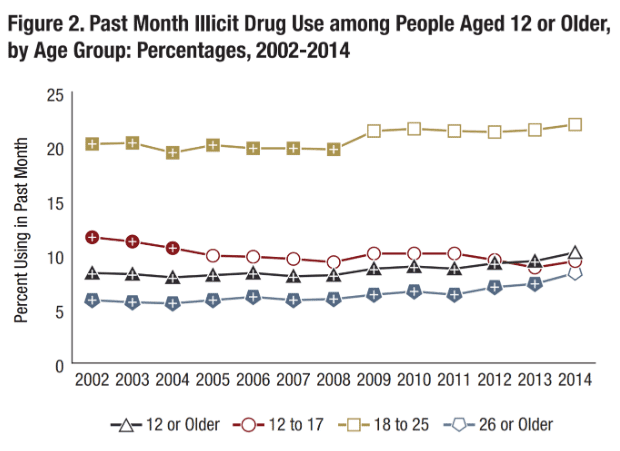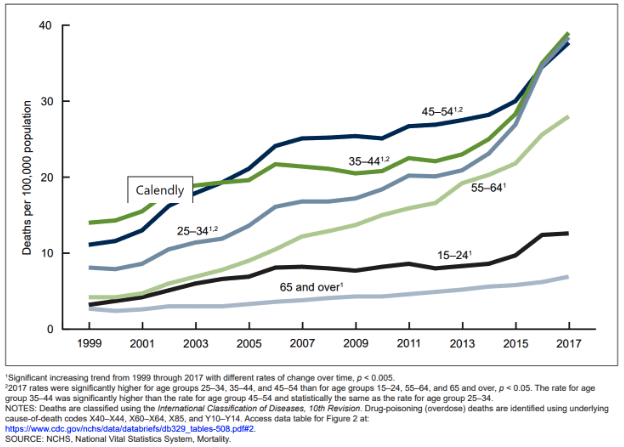Stigma is Killing Men
“Man Up”, “Why don’t you put your big boy pants on?”, “Don’t be such a pansy”, “Boys don’t cry”, “It’s just a scratch, rub some dirt on it”, “Stop acting like such a girl”… How many have you heard? Because we’ve heard them all.
One of the hardest things for men to overcome is gender roles. They are supposed to be the “man of the house”. They are supposed to be the rock, the breadwinner, the one who holds it all together. They can face any challenge stoically while also being the shoulder to cry on.
But the truth of the matter is that men face just as many challenges. They worry about seeking help for many reasons.
- Fear of what people will think or say
- Losing their status at home or in the family
- Not being a good father or role model
- Being passed over for promotions
- Appearing weak
- Being thought of as a failure
- Being seen as “less of a man”
Instead of continuing old habits and patterns, it’s time to change how we address men’s mental health. We need to start breaking down some of these barriers to accessible treatment for the men that need it. By getting more men involved and more men in on the discussion, we can start taking steps to redefine what “being a man” is. Being a man doesn’t mean suffering in silence, it doesn’t mean putting up with crippling anxiety and depression to make others more comfortable.
Thankfully, more and more men are speaking up about mental illnesses, depression, and anxiety. People like Dwayne Johnson, Terry Bradshaw, Oscar de la Hoya, and Micheal Phelps have all spoke up about their struggles. Men who, undeniably, would be considered “macho” and have typically “manly” job roles. Normalizing men who are seen as macho but also have suffered from mental illness is also a great step.
Mental Health – Are We Really Doing Enough?
Men have to define what makes a man, whether that is the “strong and silent type” or “the sensitive guy”, every man has traits that make them men. No one should feel like they can’t seek help because they would feel like “less of a man” or they are “different”.
#MentalHealthAwareness, #EndTheStigma, #SoberIsSexy… We’re inundated every day with positive messages surrounding mental health, but in 2018, 1 in 5 adults experienced a mental illness.
Mental health is an issue that is on the tip of everyone’s tongues these days. We talk about supporting mental health initiatives in schools and workplaces. We talk about “me time” and meditation but we forgot something…
Somewhere along the line, we lost the connection with a huge segment of the population that this disease is affecting, and that is our husbands, our fathers, our sons, our brothers… Men experience mental illnesses at the same rate as everyone else. The difference is we have created a society where men are half as likely than women to seek out help for anxiety, depression, or other mental health issues. The question is why?
They’re Not Really Mad at You
One of the hardest things about dealing with depression and anxiety in men is that it looks so much different than how women, experience it. Girlfriends can get together with a bottle of wine or some pints of ice cream and get lost in their feelings.
If it is serious, we usually have no problem relating to something either we’ve experienced or something we watched one of our other friends go through. Women tend to have that “mothering instinct”, and want to be there and help.
Men, on the other hand, tend to go in the opposite direction. You may have noticed something was off with your husband but when you reach out and ask, they jump down your throat. “I’m fine!” “I can handle it!” “I’ve got it, don’t worry about it”.
Men tend to be more action-oriented, and they’ll probably just be upset that they can’t even fix their own problems. Men often need space to cool down rather than talking through things right away…
Be there for support but realize that the support you’re offering needs to be on HIS terms… Not yours. Instead of asking men to explore their feelings with you, arrange a night for him to go play ball with the guys might work better.
The only thing that matters, in the end, is that he gets help because the numbers aren’t lying…
The Numbers Are Shocking – Why Men’s Mental Health is So Important
We already know that people that face addiction also face mental health issues. But it’s really a chicken or the egg issue as to what comes first. Men tend to isolate themselves, distancing themselves from friends and family, they are also more likely to try to self-medicate with drugs and alcohol. Men are more than twice as likely to abuse alcohol as women. Men are also twice as likely to have a substance use disorder even though men and women are both just as likely to abuse substances.
When you look at the rate of people that have both a mental illness and a substance use disorder, you will find that 50% of people that have severe mental health disorders are affected by substance use, 37% of people that misuse alcohol and 53% of people that misuse drugs have a mental disorder, and, of all people that are diagnosed with a mental health disorder, 29% also misuse alcohol and/or drugs.
These numbers show that rates of mental health issues are going under-reported in men. Even worse, these types of addictions can lead to long-term damage and overdose. It has been reported that 62,000 men die of alcohol-related causes compared to 26,000 women annually and in 2017, 32,337 men died of an opioid overdose compared to 15,263 women.
Many of these deaths could have been avoided if the men that suffered from a mental health issue and addiction had received the help that they needed. If someone suffers from both, then both issues need to be addressed because the addiction and the mental health issues feed off of one another. Death doesn’t just come in the form of overdose and health issues from long term use, suicide is also a huge issue.
The Silent Crisis Is Striking in Record Numbers
We tend to think that the men in our lives are just “feeling down” or “having a “run of bad luck” but we need to get away from this idea that men are strong and invincible. Taking an example from one of our own writers here at Promises, she never even really thought about her Dad dying before it happened. She knew in her head that it would happen someday, but couldn’t imagine it actually happening, especially anytime soon. He was strong. He passed from natural causes, suicide didn’t even enter the equation.
But we have to start thinking differently because suicide was the second leading cause of death for those between the ages of 10-34 and the tenth leading cause of death overall. Those statistics are disturbing enough on their own but the fact is, men make up the majority of those deaths. In 2017, men died from suicide at a rate of more than 3.5 times more than women.
Most opioid ODs are more than likely passive suicides based on what we are seeing here. When you look at the men ODing, it’s not even young kids, though far more kids are abusing drugs than older males. Overdose deaths are also twice as likely to occur in men as in women.
Even though the rates of use are lower in older adults, you have to consider the years of abuse that they may have under their belt. Older adults also tend to have other health-related issues that would weaken the system.
Misuse of substances, in general, cause higher rates of depression. If these men are using substances to self-medicate, then the risk doubles. Because suicide notes are only found in about one-third of overdose deaths, we can only speculate on the other causes but the risk factors go hand in hand. Not being treated for a mental health issue can lead to serious, even deadly, consequences.

Source: https://www.samhsa.gov/data/sites/default/files/NSDUH-FRR1-2014/NSDUH-FRR1-2014.pdf
Overdose Deaths by Age

That means that 22.4 men per 100,000 men died from suicide in 2017, for females that number was only 6.1 per 100,000.
Suicide rates have increased by 25.4% since 1999. It shouldn’t be surprising that the suicide rates have increased with the rise of the opioid epidemic. According to HHS.gov,
“Alcohol and substance abuse problems contribute to suicidal behavior in several ways. Persons who are dependent on substances often have a number of other risk factors for suicide. In addition to being depressed, they are also likely to have social and financial problems. Substance use and abuse can be common among persons prone to be impulsive, and among persons who engage in many types of high-risk behaviors that result in self-harm.”
Just like our writer never imagined her father passing away, most of us never think in a million years that their husband, father, son, or brother would ever commit suicide. “I never knew he was that bad off.” “I never imagined he would be the type.” “I was just completely shocked when I heard.” Anyone that has had someone close to them commit suicide has heard something like the above.
We have to quit ignoring the warning signs because the rate of suicide in white males has soared over the last ten years accounting for over 70% of suicides in 2017. These numbers don’t even factor in the deaths from opioid overdoses that we know have been on the rise in the last ten years. We are losing our husbands, son, brother, and friends at alarming rates but, for some reason, we’re always shocked by the news. The “it will never happen to me” mentality has to end because it IS happening to someone.
In addition to all of the other pressures that men face, they also tend to be in more high-pressure jobs like the police force, fire fighting, the military. All of these careers put these men at higher risk of developing Post Traumatic Stress Disorder (PTSD). You can look at the rates of military suicides and see what an alarming problem this is.
Many of the men that we know that have been deployed at some point in their life won’t talk about it, whether they suffer from PTSD or not. You’ll hear funny stories, sweet stories about some of the kids, guys that got in trouble for doing something dumb but rarely anything serious. The guy that never made it back to finish the game you started, the battle buddy they held until the end, or any of the other smells, sounds, and sights, they’ll never get rid of.
Men need a place where they can feel comfortable talking, sharing, or just being together. Many of the men feel like they can’t burden their families with their feelings of depression and this goes double for the men that are firefighters, policemen, and military men. They have seen things that they often don’t want to recall themselves, let alone tell someone else about it.
Starting the discussion, including men in the way they want and need to be included, and community and national efforts are all helping. There has recently been a surge in programs and campaigns geared toward getting men to realize it’s okay to get help. There’s Headsupguys, Movember, BeyondBlue, and many others. Getting the information out there about men and mental health is crucial. It shouldn’t be a silent crisis and we can’t let it be.
Instead of Saying “Man Up” Ask “What’s Wrong”
It is hard to start a dialogue with someone that you may feel is depressed. You don’t know what to say, you don’t want to embarrass them, you don’t want them to get angry. But sometimes all these people want is for someone to reach out a hand. Here are some things that you CAN do to try and get men the help that they need.
- You’re not there to diagnose them. You’re there as a friend, spouse, brother, etc.
- Be there. Make sure that they know that you are there for them. They don’t have to talk or get into their feelings, but let them know that they can come to you even if it is just to watch the game. Let them know they don’t have to be isolated and that they are not a burden.
- Bring up changes. Let them know you’ve noticed they’ve been acting different recently and ask them if they do want to talk about what is going on.
- Listen. Actively listen to what they have to say. Don’t listen just to give your own opinion and don’t try to “fix the problem”. Whatever they have to say, you’re there to listen without judging. The last thing they need is someone judging what they feel depressed about and trying to fix their problem. If there was a quick fix, they probably would have used it by now.
- Encourage. Encourage them to seek help. If they don’t have a primary physician that can provide a referral, help them research local clinics that they could visit. Many times people that are facing depression feel dejected and will give up. Don’t be afraid to reach out to professionals. We’re always here, at Promises, to offer help.
These are just a few ways that we can better support the men in our lives and encourage them to get help. Depression can be a sensitive topic. Promises Behavioral Health is dedicated to compassionate caring, without judgment. We offer possibilities and promises. If you have more questions feel free to reach out to us online here or call us right now at 888.483.7451.

